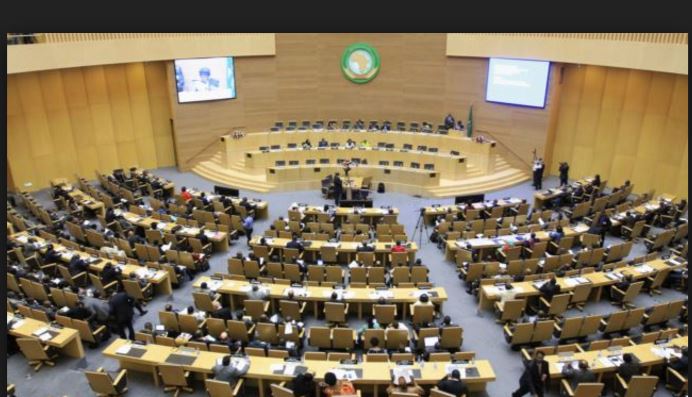APA-Niamey (Niger) – The African Union’s Peace and Security Council which held an emergency meeting in Addis Ababa on Monday to discuss the political situation in Niger, has still not taken a clear position on military intervention as suggested by the Economic Community of West African States (ECOWAS).
In contrast to ECOWAS, the AU Peace and Security Council (PSC) is not strongly in favor of a military intervention in Niger, as evidenced by the conclusions of the emergency meeting on the political situation in the country, which the body held last Monday in the Ethiopian capital.
More than 48 days after the meeting, no official communiqué on the PSC’s position has been published, but according to statements made to the media by several diplomats, the military option envisaged by the ECOWAS heads of state is far from a consensus. Consultations are currently underway to reach an agreement on an official PSC position to be announced this Wednesday, August 16, 2023.
According to the same diplomatic sources, while the representatives of the African states have generally agreed to condemn the interruption of the democratic order and to demand a return to constitutional order – Niger has been suspended from all AU bodies – opinions have diverged on the support to be given to the armed intervention requested by ECOWAS.
Some countries, such as Niger’s neighbor Algeria, are categorically opposed to military action, which would have negative repercussions for the entire region, according to its president, Abdelmajid Tebboune. Other Central and Southern African countries are also concerned about the consequences of such an option for the security and stability of the sub-region and, above all, for the image of the PSC and the AU in particular, given that the body’s role is to help “resolve conflicts” on the continent.
At their second extraordinary summit on Niger, held in Abuja on August 10, ECOWAS heads of state decided to activate the organization’s standby force in the event of military action in Niger to restore constitutional order. A decision that was subsequently “strongly” supported by the Chairman of the Commission, Moussa Faki Mahamat of Chad, but clearly not favored by the PSC, the AU Security Council.
AYB/ac/lb/abj/APA


